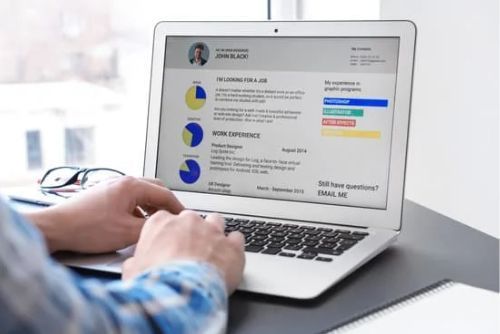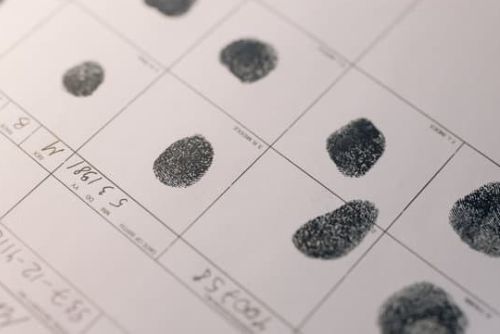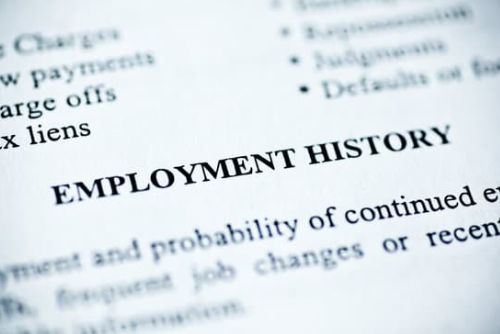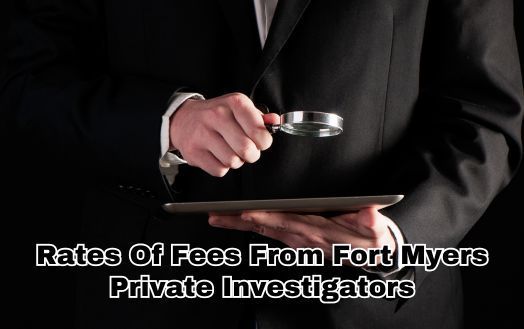How Long Does A Background Check Take

As someone who has applied for countless jobs in my career, I can attest to the frustration of waiting for a background check to be completed. It's not uncommon to be left wondering how long it will take and what factors are affecting the turnaround time. But fear not, because in this article we will explore everything you need to know about how long does a background check take.
Background checks have become an essential part of the hiring process for many companies, as they help ensure that potential employees are trustworthy and suitable for the job. While they may seem like a hassle, they're necessary to protect employers from liability and maintain a safe work environment.
In this article, we'll dive into the different types of background checks, their typical turnaround times, and what factors can affect them. So if you're currently waiting on a background check or just want to learn more about the process, keep reading!
Background Check Overview
A background check is an investigation into someone's personal, educational, professional, and criminal history. It's conducted by employers or organizations to verify that their potential employees are trustworthy and fit for the job.
The type of background check required may vary depending on the nature of the job. The most common type of background check is a pre-employment background check. This type of screening is usually conducted before a company hires an individual for a position in their organization.
During this process, employers will look at an applicant's criminal record, education history, employment history, credit report, and other public records to determine if they're qualified for the job. A background check can take anywhere from a few days to several weeks depending on various factors such as the type of background check required and how quickly information can be obtained from different sources.
Now that you have an overview of what a background check entails, let's dive deeper into pre-employment screening without further ado.
Pre-Employment Screening

When employers screen potential hires, they typically look at factors like criminal history and employment verification. Pre-employment screening is an essential step in the hiring process as it helps determine if a candidate is suitable for the job and the company culture.
Background checks are a crucial element of pre-employment screening that employers use to verify information provided by candidates. Here are three things to keep in mind when it comes to background checks:
- The extent of the background check depends on the employer's requirements: Some companies may only perform a basic criminal record check, while others may conduct more extensive investigations that include credit reports, driving records, and educational qualifications.
- The turnaround time for background checks can vary: While some employers can complete them within 24 hours, others may take up to several weeks or longer depending on the complexity of the investigation.
- Candidates need to provide accurate information: If there are discrepancies between what is on their application and what is found during the background check, this could raise red flags with potential employers.
Pre-employment screening is an integral part of any hiring process. Employers need to ensure they hire trustworthy employees who align with their values and company culture. Understanding how background checks work and being prepared for them can help candidates increase their chances of landing their dream job without delay. Now let's talk about employment background turnaround time!
Employment Background Turnaround
Waiting for the results of an employment background check can be nerve-wracking, especially when you're eagerly waiting to hear back about a job offer. Unfortunately, there's no set timeline when it comes to turnaround time for these investigations. Each company has their own unique process and timeline that can range from a few days to several weeks.
The length of time it takes for an employment background investigation to be completed can depend on various factors. One factor is the complexity of the investigation itself. For example, if you've lived in many different states or countries or have held multiple jobs, this could prolong the turnaround time as investigators work to verify all your information.
Despite the uncertainty surrounding turnaround times, it's important not to let this delay discourage you. Companies understand that these investigations take time and will typically communicate with you throughout the process.
Keep in mind that once they receive the results of your background check, they still need to make a hiring decision based on multiple factors including your qualifications and fit within their organization. Factors affecting turnaround will also play a role in how long it takes for them to make a final decision.
Factors Affecting Turnaround Of Records

One of the factors that can impact how quickly an employment background investigation is completed is the complexity of the individual's history. For instance, if someone has lived in multiple states or countries, it may take longer to verify their education and employment history. Additionally, if they've changed their name due to marriage or other reasons, this can also slow down the background check process.
Another factor that can affect turnaround time for employment background checks is the responsiveness of previous employers and educational institutions. If an employer or school takes a long time to respond to verification requests, it can delay the overall process. Similarly, if an applicant fails to provide accurate information about their past employment or education, this will require additional follow-up and could lead to delays.
Overall, there are many factors affecting turnaround times for employment background checks. As an employer, it's important to be aware of these potential delays so that you can plan accordingly when hiring new staff members.
In the next section on criminal record checks, we'll explore what employers need to know about this critical part of the screening process.
Criminal Record Checks
To effectively screen potential employees, you must understand the importance of conducting criminal record checks and how they can impact your hiring decisions.
Criminal record checks are a crucial part of background screening, as they reveal any prior convictions or arrests that may disqualify an applicant from certain positions. Employers have a responsibility to protect their customers, clients, and employees from harm, which is why most states require criminal record checks for positions involving vulnerable populations.
When conducting criminal record checks, it's important to follow federal law. The Fair Credit Reporting Act (FCRA) requires employers to obtain written consent from applicants before conducting any background check. Additionally, employers must provide applicants with a copy of their rights under FCRA and give them the opportunity to dispute any inaccurate information found in their report. Failure to comply with these regulations could result in legal consequences for employers.
Here are some things you should know about criminal record checks:
- Not all convictions disqualify an applicant from employment.
- Some states have 'ban-the-box' laws that prohibit employers from asking about an applicant's criminal history until after a job offer has been made.
- Criminal record checks can reveal more than just convictions - they may also include pending charges or dismissed cases.
- Employers should use caution when making hiring decisions based on an applicant's criminal history as it could be discriminatory.
Understanding the ins and outs of criminal record checks is essential for any employer looking to make informed hiring decisions. However, this is only one aspect of the background screening process - next up is the fingerprinting process!
Fingerprinting Process

Now that we've covered criminal record checks, let's dive deeper into the fingerprinting process. This step is crucial in a fingerprint background check as it helps to identify any criminal history that may not be visible through other means of screening.
I remember when I had to go through this process myself for a job application, and it was surprisingly quick and painless. The fingerprinting process typically involves visiting a designated location where your fingerprints will be taken by a professional. It only takes a few minutes and all you have to do is press your fingers onto an ink pad or electronic scanner.
Once the fingerprints are captured, they are sent off to a background screening company where they can be analyzed for any potential red flags. The turnaround time for fingerprint background checks can vary depending on the employer's requirements and the complexity of the search. It's important to note that accuracy is key when it comes to background checks, especially those involving fingerprints.
That's why it's essential to choose a reputable and reliable background screening company that follows strict protocols and procedures. In the next section, we'll discuss accurate background services that can help ensure peace of mind for both employers and employees alike without sacrificing efficiency or speed.
Accurate Background Services
Looking for a reliable background screening company to ensure accuracy in your fingerprint checks? Look no further than Accurate Background Services. As one of the top background check companies, they offer efficient and trustworthy services that can give you peace of mind. Here are four reasons why Accurate Background Services is worth considering:
- Fast turnaround time for employment background checks: With their advanced technology and streamlined processes, Accurate Background Services delivers results quickly and efficiently.
- Comprehensive criminal history searches: Their extensive database searches multiple sources to provide accurate criminal records information.
- Customizable packages tailored to your needs: Whether you need a basic pre-employment check or a more thorough investigation, Accurate Background Services offers customizable packages that fit your specific requirements.
- Compliance with FCRA regulations: As an accredited member of the National Association of Professional Background Screeners (NAPBS), Accurate Background Services operates in compliance with all relevant laws and regulations.
Using Accurate Background Services can save you time and ensure accuracy in your hiring process. But it's not just about verifying criminal records – employment history verification is also important for ensuring that candidates have the experience they claim to have on their resumes. Let's dive into this topic next.
Company Employment History Verification

You might be wondering why employment history verification is essential when screening potential employees. Well, verifying an applicant's previous work experience ensures that they have the necessary skills and knowledge to perform their job duties effectively. It also helps to identify any discrepancies or false information provided on their resume or job application.
How long does a background check take? Employment background checks are typically completed within a few days, but delays can occur if the employer needs to verify information with multiple sources or if the candidate has worked for many different companies. In some cases, employers may need to contact former supervisors or HR departments to confirm dates of employment, job titles, and responsibilities.
This process can take longer if these individuals are difficult to reach or unresponsive. Delays in background checks can be frustrating for both employers and candidates alike. However, it's important not to rush this process as it can impact the quality of your hiring decisions.
In the next section, we'll explore some common causes of background check delays and provide tips on how you can avoid them altogether.
Delays In Background Checks
If employers need to verify information with multiple sources or if candidates have worked for many different companies, delays can occur in completing employment background checks. This is because each company may have their own process and timeline for verifying employment history, which could prolong the overall background check process.
Additionally, discrepancies or gaps in a candidate's employment history may require further investigation, leading to more time-consuming delays. Another factor that can cause delays in background checks is the presence of a criminal record. Depending on the severity of the offense and how recently it occurred, employers may need to conduct additional research and evaluations before making a hiring decision. In some cases, they may even need to consult legal counsel to ensure compliance with relevant regulations and laws.
Despite these potential obstacles, it's important for employers to complete thorough background checks before making any hiring decisions. Past employment verification is just one aspect of this process – next, we'll explore other key components such as criminal record checks and education verification. You can always speed up the process by
paying more for your background check.
Past Employment Verification

When verifying past employment, it's crucial to obtain accurate information from previous employers. This is because past employment history often reveals a lot about an individual's work ethic and experience. Employers want to know that they're hiring someone who has the skills and experience needed for the job.
As such, background check companies will usually contact previous employers directly to verify the accuracy of a candidate's work history. Employment verification can sometimes be a time-consuming process. This is especially true if there are discrepancies in the information provided by a candidate or if previous employers are difficult to reach.
However, it's important to take the time necessary to ensure that all relevant information is obtained and verified before making any hiring decisions. In addition, some employers may choose to conduct additional checks beyond just verification of past employment.
For example, they might also conduct criminal background checks or review credit histories. This can help them gain a more complete picture of a candidate's character and suitability for the position they're applying for. Moving on to the next section about background check companies, these entities play an essential role in ensuring that all relevant information is obtained during this process.
Background Checks For Companies
Background check companies play a vital role in ensuring that employers obtain accurate background checks on potential hires. These companies are responsible for collecting and verifying information, such as employment history, criminal records, credit history, and education credentials.
By relying on professional background check providers, employers can feel confident that they're making informed decisions about who they bring onto their team. Accurate background checks are essential for maintaining the integrity of any company's hiring process.
Background check companies use a variety of sources to gather information about job candidates, including public records databases and social media platforms. They also have access to specialized tools that allow them to verify the accuracy of the data they collect. This comprehensive approach ensures that employers receive reliable information about their potential employees.
When it comes to passing a background check, working with a reputable background check company is crucial. By partnering with experts in this field, you can rest assured that your personal and professional history will be accurately represented to potential employers. With accurate information at your disposal, you'll be better equipped to make informed decisions about which job opportunities are right for you.
Passing A Background Check

To successfully pass a background check, you'll need to ensure that your personal and professional history is accurately represented through reputable sources. Here are some tips to help you ace the process:
- Be honest: Don't try to hide any criminal history or past mistakes. Instead, be upfront about them and explain what you've learned from those experiences. Honesty is always appreciated by employers and can even work in your favor.
- Check your records: Before the background check, it's a good idea to review your own criminal record and credit score. If there are any errors or discrepancies, address them with the appropriate agency beforehand.
- Criminal history: Make sure all charges have been properly dismissed or expunged if applicable.
- Credit score: Ensure there are no issues with identity theft or fraud.
By following these steps, you'll increase your chances of passing a background check with flying colors. However, keep in mind that different companies may have varying criteria for what they consider acceptable. It's important to stay calm during the process and remember that transparency is key.
As we move on to discussing gun background check time frames, it's important to note that passing a background check for firearms involves similar requirements as other types of checks. The process may take longer due to additional regulations surrounding firearms ownership, but the same principles apply: honesty and accuracy in reporting your personal and professional history will go a long way toward ensuring success.
Gun Background Check Time Frame
Once you've selected the firearm you want to purchase, it's important that you're aware of how quickly the gun background check process can be completed.
The timeframe for completing a gun background check varies depending on various factors such as state laws, individual circumstances, and the number of applications being processed by the FBI. On average, however, most background checks are completed within a few minutes.
If there are no issues with your application or criminal record, then your gun purchase will likely be approved almost instantly. However, if there are any discrepancies or red flags in your application or criminal history, then additional investigation may be needed before a decision is made.
In such cases, it may take up to several days or even weeks for your background check to be completed. It's important to note that federal law requires all gun buyers to undergo a background check before purchasing a firearm from any licensed dealer. This includes both online purchases and in-person transactions at gun stores.
Failure to comply with these regulations can result in severe legal consequences. So make sure that you understand the requirements and take necessary steps to ensure that your firearm purchase is legal and safe.
Federal Background Check Requirements

Before buying a firearm from any licensed dealer, it's crucial to understand and comply with federal requirements for background checks. Federal law requires that all firearms dealers conduct a National Instant Criminal Background Check System (NICS) check before selling a gun to anyone who isn't a licensed dealer.
The NICS check searches through criminal court records, as well as other databases to determine if the potential buyer has any disqualifying factors. To pass a NICS check, the individual must not have been convicted of certain crimes or have any outstanding warrants. Additionally, individuals subject to restraining orders or have been involuntarily committed to mental institutions are also ineligible to buy firearms.
It's important to note that even if an individual passes the NICS check, some states may require additional background checks or waiting periods before allowing the purchase of certain types of firearms. It's essential for individuals looking to purchase guns from licensed dealers to understand these federal background check requirements and ensure they meet all eligibility criteria before attempting to make a purchase.
Understanding state laws regarding firearm purchases can help prevent any legal issues down the line. Moving forward, it's also important for individuals and businesses alike to be familiar with fair credit reporting act compliance when conducting background checks on potential employees or tenants.
Fair Credit Reporting Act Compliance
Complying with the Fair Credit Reporting Act is crucial for individuals and businesses to avoid legal trouble and protect the rights of potential employees or tenants. The fair credit reporting act sets guidelines on how employers can conduct background checks, ensuring that they are done fairly and without discrimination.
Employers need to obtain written consent from job seekers before conducting a background check, and they must provide a clear explanation of their intent. The Fair Credit Reporting Act also requires employers to give candidates an opportunity to dispute any inaccurate information found in their reports. This means that if something comes up in the report, the employer must notify the candidate before making any decisions based on it. Additionally, employers cannot use information such as bankruptcies or judgments against candidates when making hiring decisions.
To comply with the Fair Credit Reporting Act, many employers turn to third-party background check companies that specialize in gathering information from various sources such as court records or national criminal databases. These companies must also follow strict guidelines under the FCRA to ensure that they provide accurate and complete information while protecting individuals' privacy rights.
By using these services, employers can save time and effort while ensuring compliance with federal laws regarding employment screening.
Final Thoughts
Now you have a clear idea of how long does a background check take. Overall, the length of time it takes for a background check to be completed can vary greatly depending on a variety of factors. For pre-employment screenings, employers typically aim to complete the process within one to five business days. However, some checks may take longer if there are more complex components or issues that arise.
It's important to remember that passing a background check isn't solely dependent on having a clean criminal record. Other factors, such as credit history and employment verification, can also play a role in determining whether someone passes or fails the screening process.
Ultimately, being honest and upfront about any potential issues can help increase your chances of successfully passing a background check.
Frequently Asked Questions
Can I Ask For A Copy Of My Own Background Check Report?
Yes, you absolutely have the right to request a copy of your own background check report. It's important to be aware of what information potential employers or other parties may see when they conduct a background check on you.
By obtaining a copy of your own report, you can ensure that everything is accurate and up-to-date. Plus, having this knowledge empowers you to address any issues that may arise during the job application process.
Don't hesitate to ask for a copy of your background check report and take control of your professional future!
How Often Should Employers Conduct Background Checks On Their Employees?
As someone who values innovation and progress, I believe that employers should conduct background checks on their employees at least once a year. This not only ensures the safety and security of the workplace, but also shows a commitment to creating a culture of transparency and accountability.
With technology constantly evolving and new information becoming available, it's essential that companies stay up-to-date on any changes or updates in their employees' backgrounds.
By conducting regular background checks, employers can maintain their standards for hiring and continue to create a safe and productive environment for everyone involved.
What Happens If There Is Inaccurate Information On My Background Check Report?
If there's inaccurate information on my background check report, I feel frustrated and concerned about the potential impact on my job prospects. It's essential to take immediate action to correct any errors by contacting the background check company and providing them with accurate information or documentation.
Additionally, it's important to reach out to the employer who received the incorrect report and explain the situation while also presenting evidence of your correct credentials. In some cases, employers may be willing to reconsider their decision if they learn that an error was made in your background check report.
Ultimately, it's crucial to stay proactive throughout this process and ensure that all parties involved are aware of any inaccuracies before making a final hiring decision.
As someone who values innovation, I believe that we should constantly strive for more efficient and accurate ways of conducting background checks to avoid these types of errors in the future.
Are There Any Restrictions On What An Employer Can Ask About My Criminal History During A Background Check?
As someone who wants to innovate and stay ahead of the game, you may be wondering if there are any restrictions on what an employer can ask about your criminal history during a background check.
The answer is yes, there are limitations in place to protect job seekers from discrimination based on their past mistakes or convictions. For instance, employers cannot ask about arrests that did not lead to a conviction, sealed or expunged records, or juvenile offenses.
Additionally, some states have 'ban the box' laws that prohibit employers from asking about criminal history on job applications or conducting background checks until after a conditional offer of employment has been made. These measures aim to give individuals with a criminal record a fair chance at obtaining gainful employment while still allowing employers to make informed hiring decisions based on relevant information.
How Long Do Background Check Companies Keep My Information On File?
Background check companies typically keep information on file for a certain period of time, but it varies depending on the type of background check and the company's policy.
Personally, I've seen some companies keep records for up to seven years, while others may only keep them for a year or two. However, as someone who values innovation and staying ahead of the game, I believe that there should be more transparency when it comes to how long our personal information is being stored by these companies.
As technology advances and data breaches become more common, it's important to know exactly what information is being kept and for how long. We should strive towards creating a system that prioritizes privacy and security while still allowing employers to make informed hiring decisions.













